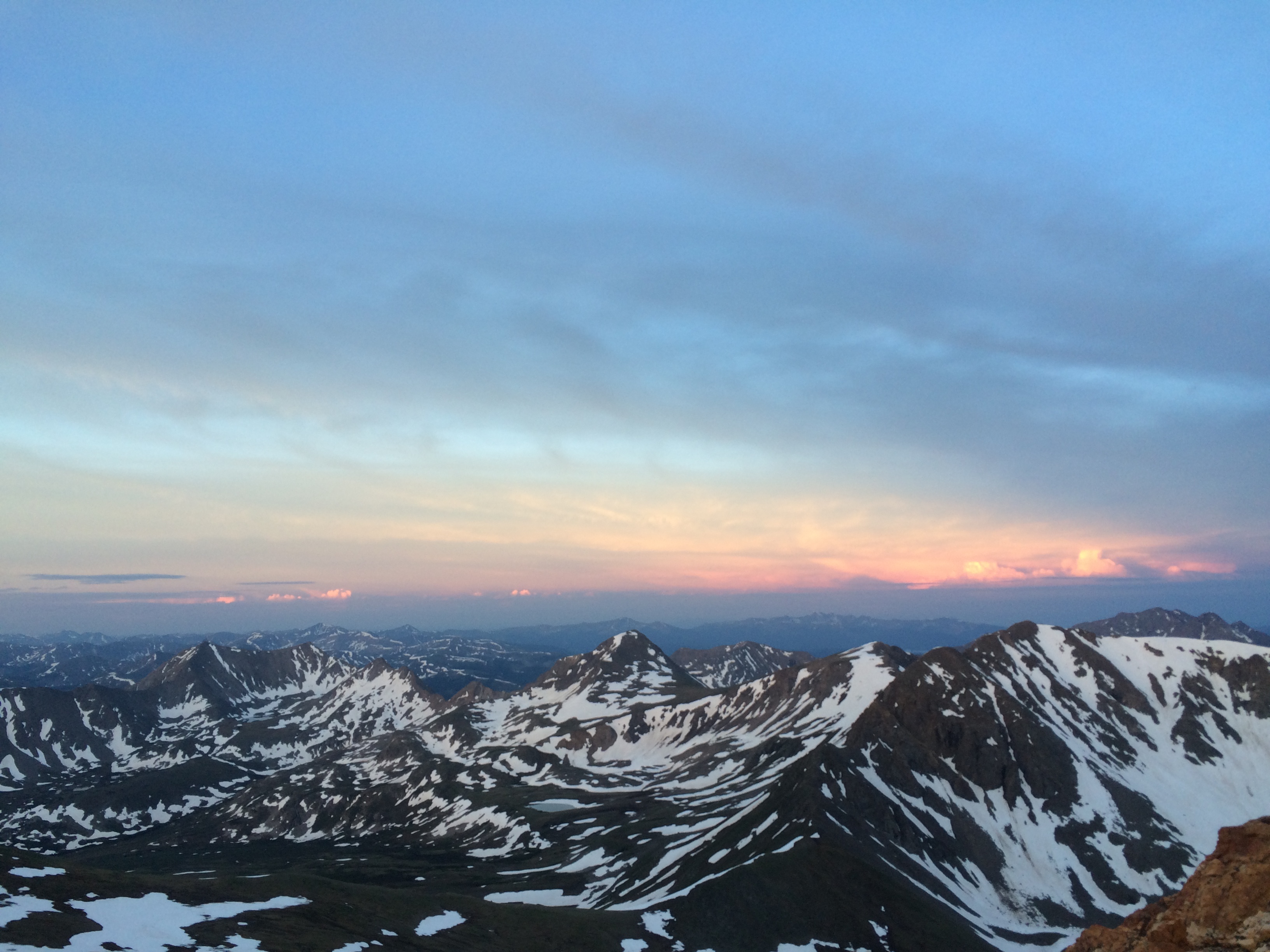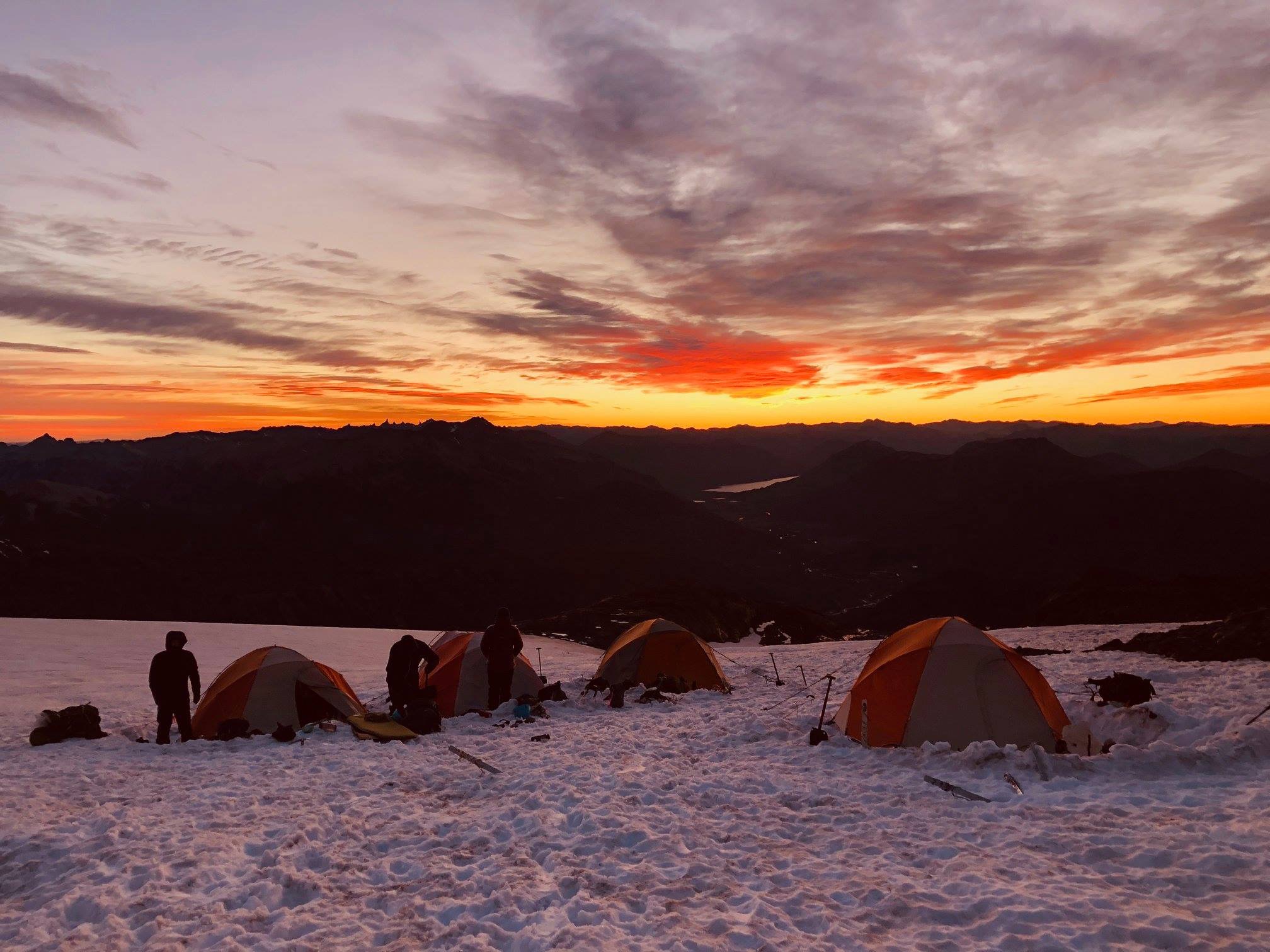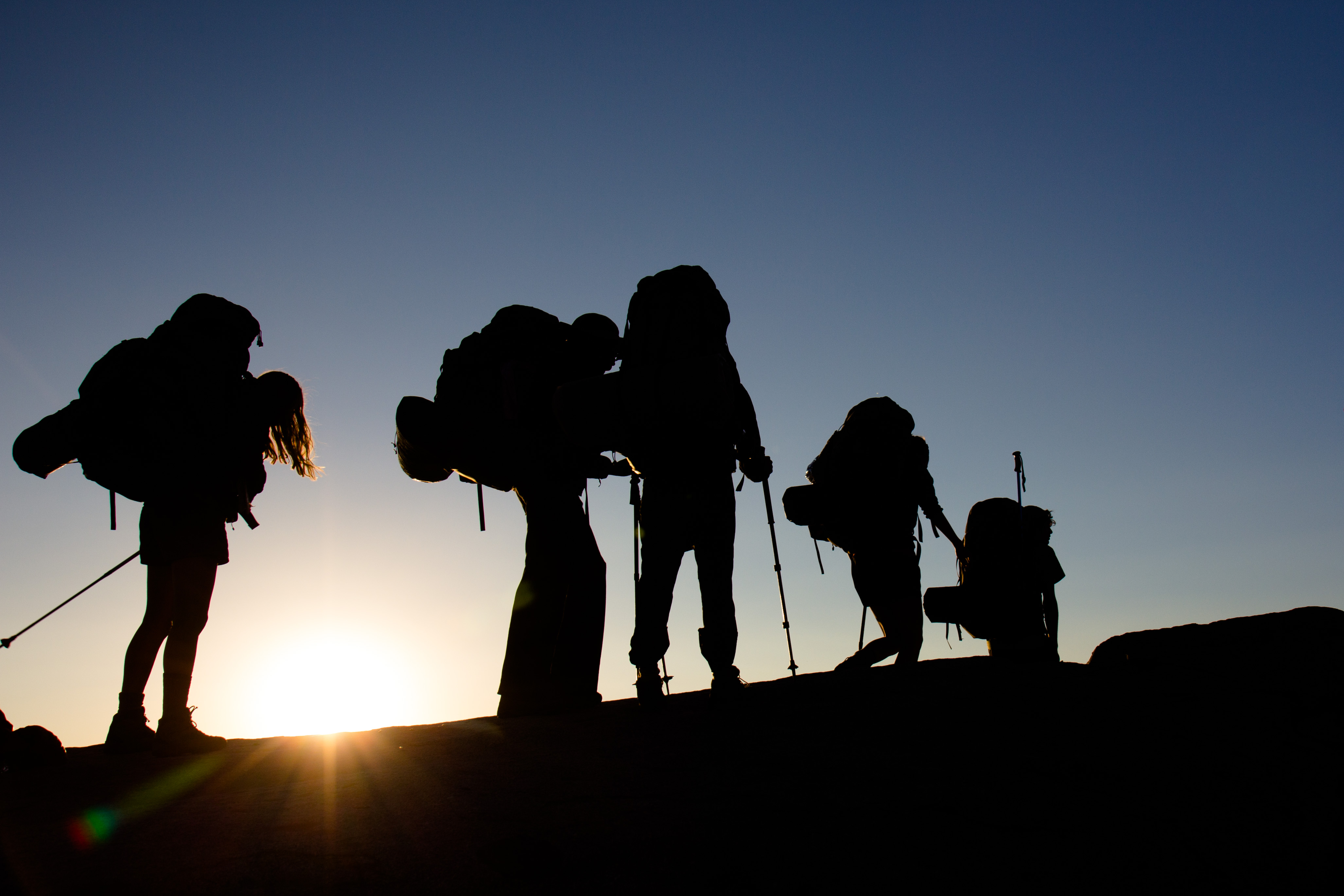Every student comes face-to-face with their growth zone on an outdoor expedition. This is the story of one student’s growth zone and how it taught her compassion.
Part Three of a Three-Part Series on Outdoor Education within the Growth Zone. Read the other two blogs here.
Living in the growth zone begins with a decision to leave familiarity and comfort behind. Every student must make this decision before leaving for their Outward Bound course. It’s impossible to imagine what lies ahead, and after the fact, it’s impossible to be the same person you were prior. As an Instructor, my perspective on the growth zone comes from the facilitator angle. Julia, a 2020 NCOBS International Semester Alum, offers a student’s perspective. From mountaineering in Patagonia, Argentina, canoeing in the Florida Everglades and backpacking in the North Carolina mountains, she has over 70 days of experience within the growth zone. Julia has since started working for Outward Bound, first as a Logistics Coordinator and currently as an Instructor. Read the Q&A below to hear about her experience in the growth zone.

Photo by Matt Zia.
Q: Why and how did you decide to take a semester away from college and go Outward Bound?
A: “I was in a transition period. In college, I wasn’t happy with my living situation and was looking for a change. I was looking at other options for my semester when I was introduced to a scholarship opportunity [with Outward Bound]. I decided to go on an expedition, just a couple of months before the course start date.”
Q: Did you have any expectations, goals or intentions heading into your course?
A: “I didn’t have any going into it, but as soon as I got to the course, I found some areas of development for myself. I had done an Outward Bound course before, so generally, I knew how it worked. There was definitely some apprehension going in. I had never been in the woods that long or a different country at all. I had never done anything that big. I’m the type of person who doesn’t think, I just do, so I went. I wasn’t prepared for it mentally, but once I got into it my attitude and mindset changed.”
Q: What does a growth zone look and feel like to you?
A: “Being uncomfortable. Being challenged and then having real conversations about yourself and discovering yourself. For example, I guess I’m uncomfortable asking questions when I don’t know about something. Being on an expedition in a place where I was learning about a lot of new things, I got more comfortable asking those types of questions.”
Q: What was the hardest part of your course experience?
A: “Group dynamics while traveling and at camp was the most challenging thing. Backcountry traveling specifically, we had people in the group who would walk fast, and we had to have lots of conversations about pace. The communication while traveling was not the best and we would get frustrated with each other. In Florida, the bugs added to the challenge. For me, it was people with negative attitudes and complaining. That was where I started working on patience.”
Q: How did you handle this challenge?
A: “I handled it by talking to my Instructors and getting advice on how to handle the situation. Other times I might say something not super productive to someone and, as a result, have to resolve that conflict. In general, just working on having a good attitude while on the expedition and speaking up for people who maybe weren’t speaking up.”

Q: Did you find any comfort zones throughout your long course?
A: “Specifically, on Solo while in Argentina, we had been on course for a week or so. I was out of the constant technology world and found myself able to sit with myself—that was a big shift. I had been uncomfortable without a constant form of entertainment. Additionally, I got into the habit of writing letters to loved ones every chance I got. That helped comfort me in the sense of being away from home and helped me feel close to them. It was a nice way to relieve that anxiety of missing them.”
Q: Share a specific story of a time on expedition when you were very much in your growth zone.
A: “When we were camping on the glacier in Patagonia, I was sharing a tent with two people that I had the most conflict with. We were also cooking in the tent and spending a lot of time together. Being in that situation, I think living with them for three days allowed me to get to know them better and how they were going about things. Figuring out how we could communicate together productively was a big growth for me.”
Q: What were some of the biggest takeaways from your semester experience?
A: “Patience and compassion are really important. Also, my body can do way more than I think it can. And taking time to think about yourself and your goals is really clarifying.”

A crew is shown having crossed the last ridge of the day at sunset before descending into camp. Photo by Joel Reid.
Q: What role did the challenges of course play in arriving at these takeaways?
A: “I think that being put in a physically and emotionally challenging yet safe environment provided a space for me to work through those challenges.”
Q: How do you feel your course experience affected who you are as a person?
A: “It helped me understand perspectives of other people and helped me learn how to empathize better than I had before. Seeing other people be challenged helped in that growth of compassion. For example, seeing someone physically struggle on a hike and be able to show compassion towards them has been transferable to my daily life when I see someone struggle in another way and can show compassion, and vice versa- compassion for myself when I am the one struggling.”
About the Author
Addie Hurwitz is a field Instructor for the North Carolina Outward Bound School, primarily out of Table Rock base camp. Addie has a degree in Recreation, Park, and Tourism Management from Penn State University. She loves working in experiential education and takes similar joy from studying its academic side. When not on a course, Addie is likely skiing or traveling.




